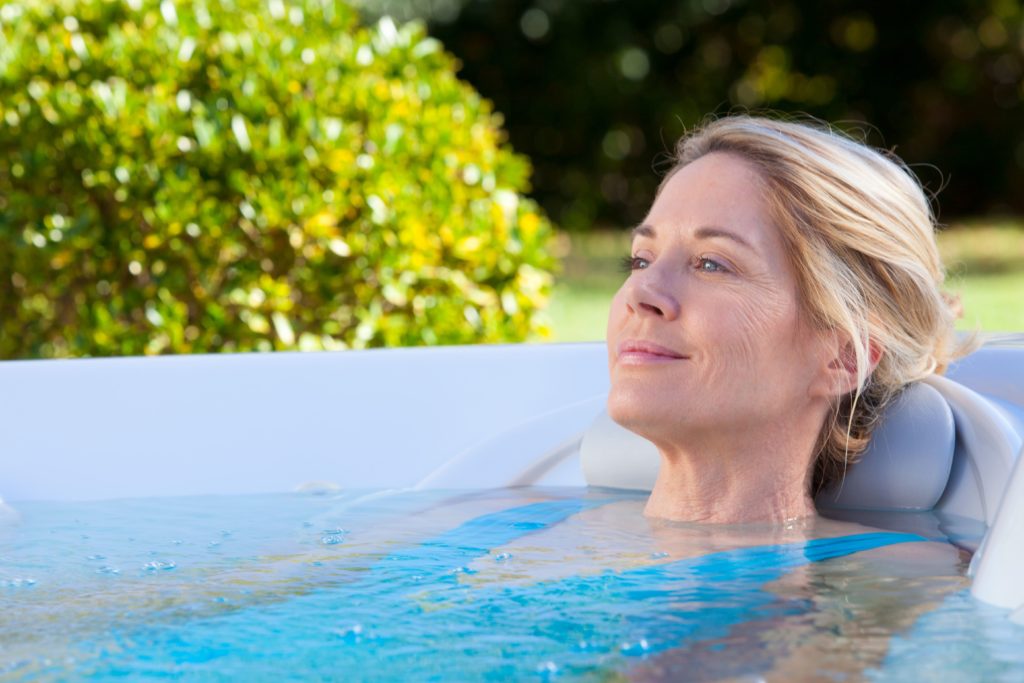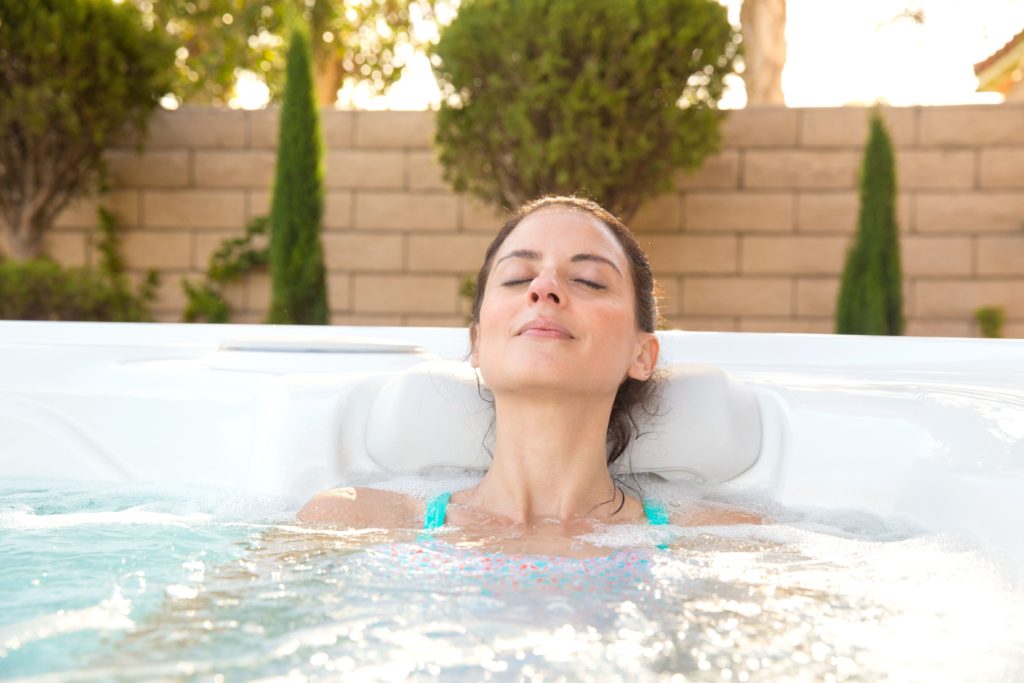Do Hot Tubs Help Headache Pain?
Originally posted on www.hotspring.com.
Living with frequent headaches can make daily life seem difficult and trying, interfering with people’s ability to pursue an active, productive lifestyle. For some, no easy remedy or treatment seems within reach; despite what they’ve tried, the headaches just keep coming. Not even an apple a day keeps the headaches away.
Frequent headaches can be caused by many issues, including stress, difficulty sleeping, and other lifestyle factors. While modern treatments, including anti-inflammatories and pain relievers can help relieve the symptoms, recurring headaches indicate that these products have not removed the cause.
If the cause is rooted in lifestyle challenges, one way to help lessen muscular tension, improve sleep, and move towards a more active lifestyle is to try taking daily soaks in a hot tub. While a hot tub may not directly counter headache symptoms, it may help reduce their frequency by alleviating the conditions that create headaches in the first place.
HOW DO HOT TUBS HELP WITH HEADACHES?
Hot tubs do not directly provide pain relief for headaches. However, they can help to reduce the causes of certain tension headaches. According to the Mayo Clinic, “stress is the most commonly reported trigger for tension headaches.” Hot tubs are a great way to reduce everyday stress.
Hot tubs help reduce stress directly in several ways. The warm water in a hot tub helps relax muscles, creating a bodily sense of relief. Built-in massage jets combine with the water’s warmth to soothe and unknot tight muscles. The water enables a buoyant effect, taking away some of the experience of body weight, especially off of the joints, which gives the body a chance to unwind from its constant struggle against gravity.
Hot tubs effectively reduce stress in other ways as well. In the hot tub, a person can distance themselves from their phone and computer, which are conduits to the weight and responsibilities of their working life and personal obligations. Being able to relax, away from these tension-inducing devices and demands, gives the mind a chance to slow down, enjoy the moment, and recharge. To aid in this retreat, high-quality hot tubs come with calming lighting effects, gentle waterfalls or fountains, and the ability to play your favorite relaxing music or podcast.

ROUTINE HOT TUB USE PROVIDES ONGOING BENEFITS
While even a single soak can help a person relax, soaking for a short while each day provides cumulative relaxation benefits. In addition to helping reduce stress which has already accumulated, it helps prevent tension from building up in the first place. A hot tub can be a daily release valve for stress and anxiety, a simple routine that helps people avoid carrying around mounting levels of tension. As tension headaches are a recurring issue, caused by recurring and built-up stress, routine hot tub soaks may go a long way towards reducing the frequency of headaches.
According to the Harvard Medical School, getting enough sleep can help reduce the likelihood of tension headaches. For some, this is easier said than done. Fortunately, hot tubs help people sleep too. Taking a twenty-minute soak about an hour before bed can help people ease into a deep slumber—in part, by slightly raising body temperature, then allowing the body to cool off. This mimics the body’s natural tendency to cool down a few degrees as it goes to sleep.

HOT TUB ROUTINES CAN ANCHOR AN ACTIVE LIFESTYLE
Developing a hot tub routine can help people live a more healthy and active lifestyle on a regular basis, which is great in itself, and it can also help reduce the onset of tension headaches. By building either a morning or evening soak—or both—into their schedule, a person creates a platform on which to build in other healthy routines, including exercise.
Depending on their level of fitness, people can add a twenty-minute walk to their day or another form of invigorating exercise, then immediately unwind in the hot tub. Some people choose to combine exercise and relaxation by stretching or doing yoga while in the hot tub. Since regular exercise can also help people sleep, this multiplies the effectiveness of hot tub use, further decreasing the likelihood of fatigue-related tension headaches.
While there’s no guaranteed method to eliminate tension headaches, it is possible to help reduce their likelihood by working to reduce stress, sleep better, and live a more active lifestyle. Slipping into a warm hot tub helps people relax, unwind, and feel better, every day.
We design our hot tubs to provide the highest level of comfort and relaxation. Powerful massage jets soothe aching muscles while contoured seats allow hot tubbers to sink into bliss. To see our full line of hot tubs, download a brochure.

